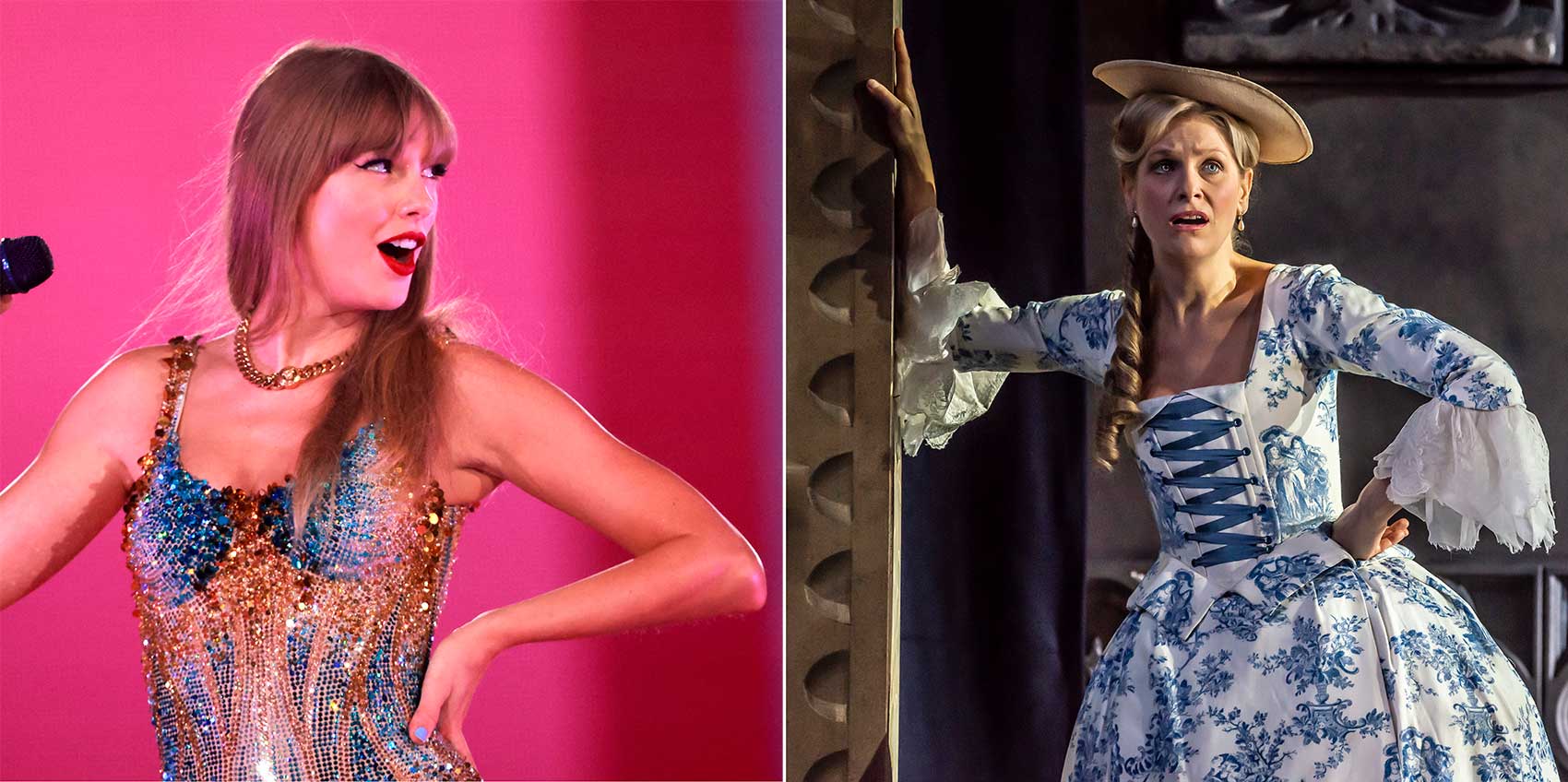What price culture? £380 to see Taylor Swift — or £12 for a night at the Royal Opera
Country Life's cultural crusader Athena takes a look at the thorny issue of live music ticket prices — and how the habits of concert-goers today show that the struggles of classical music and opera to find an audience run far deeper than mere cost.


Exquisite houses, the beauty of Nature, and how to get the most from your life, straight to your inbox.
You are now subscribed
Your newsletter sign-up was successful
Athena has been enjoying herself in recent days collecting anecdotal accounts of the cost of attending music events. It all began with a conversation with a mixed group of teenagers and adults about attempts to buy tickets for a Taylor Swift concert, part of a global tour the singer is undertaking next year. The detail that caught her attention was that one of those present had spent six hours in a virtual queue, at the end of which they were offered three tickets at a cost £380 each. They had baulked at the purchase, but not without some heartache.
Now, Athena would not claim to be a ‘Swiftie’ and can’t testify to the truth of anything that follows but merely reports what was said. Others present had queued for less time and paid less, but the clear consensus was that, given how expensive the tickets would subsequently become (at the time of writing, tickets are at well over £500 on the secondary market) this was not an unreasonable sum to pay. One of those present admitted to buying Taylor Swift merchandise earlier in the year specifically in order to be bumped up the ticket queue.
If that’s how the system works then it was a successful investment because they queued for much less time and spent only about £150. In every case, it should be added, the tickets were only one of the expenses of the particular concert, which additionally involved long-distance travel and an overnight stay.
One of the themes of the ensuing discussion was the degree to which these prices were a product of the internet, which made it possible to reach a global audience and target sales with precision.
At this point, a formerly enthusiastic concert goer reminisced about the ability in days gone by to spot a poster on the street and pitch up to hear big bands play on the night for £20. The teenagers present talked among themselves.
There is concern in the world of classical music that ticket prices are a significant deterrent to attendance. At the time of writing, however, the Royal Opera House is offering tickets for its current production — Verdi’s Rigoletto — at between £12 and £220. The same institution, moreover, offered the cheapest tickets of any recently reported to Athena: £4 for an opportunity to watch the Australian Ballet perform during the summer (and it was apparently a wonderful occasion). Even against the economic benchmark of a cup of coffee, that’s pretty astonishing. Such pricing, surely only made possible by subsidy, is in part driven by the feeling that high ticket prices for classical music contribute to its elitist image and that the luxury of culture needs to be shared with those who cannot afford it.
Athena doesn’t want to abolish low ticket prices, but she would observe that if audiences — including teenagers — really want to attend something, they will pay for it.
Exquisite houses, the beauty of Nature, and how to get the most from your life, straight to your inbox.
Country Life is unlike any other magazine: the only glossy weekly on the newsstand and the only magazine that has been guest-edited by His Majesty The King not once, but twice. It is a celebration of modern rural life and all its diverse joys and pleasures — that was first published in Queen Victoria's Diamond Jubilee year. Our eclectic mixture of witty and informative content — from the most up-to-date property news and commentary and a coveted glimpse inside some of the UK's best houses and gardens, to gardening, the arts and interior design, written by experts in their field — still cannot be found in print or online, anywhere else.
